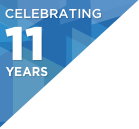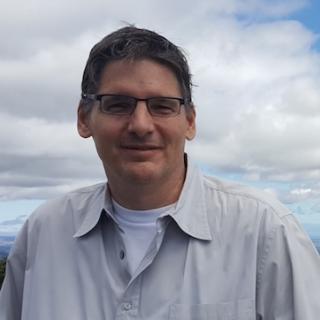Conference: Nov 5-7, 2018
Workshops: Nov 8–9, 2018
Presentation: You Can and Should Make Hardware
Share this on:
What You’ll Learn
- Always maintain zero difference between prototype and production versions - all work is releasable to production - always.
- Treat hardware as a delivery system for software value
- Identify your essential user task - your project team’s polestar
- Stay close to your users, stay close to your value - don’t fly an ocean away
- Lead by design - build fewer objects of higher value
- How to run everyday design sprints
- Continuous process improvement is your DNA
Abstract
Every industry will experience increasing pressure to collect data from, and maniuplate, the physical world: e-commerce, food, advertising, sales, manufacturing, agriculture, healthcare, labor management. This will require us to understand sensors and autonomy. We hear that making hardware is hard, but what if hardware isn’t hard? What if lean enterprise ideas worked just as well for hardware as they do for software, maybe even better?
When we accept this idea, we have the freedom to embrace failure and to release imperfect versions. This gives us the freedom to iterate like crazy - not only do we learn a ton about the problem space, we also grow our skills along the way.
Any device that will survive first contact with the market needs about 15 testable iterations before we really discover pmf, manufacturability and durability. So multiply the cycle time by 15 to get a good estimate of when we can be in the market. We really want to get this down to a week per releasable iteration, and there are ways to do this.
Similar Talks

.
Tracks
-
Architectures You've Always Wondered About
Architectural practices from the world's most well-known properties, featuring startups, massive scale, evolving architectures, and software tools used by nearly all of us.
-
Going Serverless
Learn about the state of Serverless & how to successfully leverage it! Lessons learned in the track hit on security, scalability, IoT, and offer warnings to watch out for.
-
Microservices: Patterns and Practices
Stories of success and failure building modern Microservices, including event sourcing, reactive, decomposition, & more.
-
DevOps: You Build It, You Run It
Pushing DevOps beyond adoption into cultural change. Hear about designing resilience, managing alerting, CI/CD lessons, & security. Features lessons from open source, Linkedin, Netflix, Financial Times, & more.
-
The Art of Chaos Engineering
Failure is going to happen - Are you ready? Chaos engineering is an emerging discipline - What is the state of the art?
-
The Whole Engineer
Success as an engineer is more than writing code. Hear inward looking thoughts on inclusion, attitude, leadership, remote working, and not becoming the brilliant jerk.
-
Evolving Java
Java continues to evolve & change. Track covers Spring 5, async, Kotlin, serverless, the 6-month cadence plans, & AI/ML use cases.
-
Security: Attacking and Defending
Offense and defensive security evolution that application developers should know about including SGX Enclaves, effects of AI, software exploitation techniques, & crowd defense
-
The Practice & Frontiers of AI
Learn about machine learning in practice and on the horizon. Learn about ML at Quora, Uber's Michelangelo, ML workflow with Netflix Meson and topics on Bots, Conversational interfaces, automation, and deployment practices in the space.
-
21st Century Languages
Compile to Native, Microservices, Machine learning... tailor-made languages solving modern challenges, featuring use cases around Go, Rust, C#, and Elm.
-
Modern CS in the Real World
Applied trends in Computer Science that are likely to affect Software Engineers today. Topics include category theory, crypto, CRDT's, logic-based automated reasoning, and more.
-
Stream Processing In The Modern Age
Compelling applications of stream processing using Flink, Beam, Spark, Strymon & recent advances in the field, including Custom Windowing, Stateful Streaming, SQL over Streams.
-
Performance Mythbusting
Real world, applied performance proofs across stacks. Hear performance consideratiosn for .NET, Python, & Java. Learn performance use cases with OpenJ9, Instagram, and Netflix.
-
Tools and Culture: What's Beyond a Stack of Containers?
Containers are not just a techology. It's a platform. Push your knowledge.
-
Web as Platform
All things Browser, from JavaScript Frameworks for animation and AR / VR to Web Assembly and from protocol work to open standards evolution.
-
Beyond Being an Individual Contributor
Beyond being an individual contributor. Building and Evolving managers and tech leadership.
-
Building Great Engineering Cultures
Why engineering culture matters. Track features org scaling, memes as a culture tool, Ally skills, and panels on diversity / inclusion.
-
Hardware Frontiers: Changes Affecting Software Developers Today
Topics around: Quantum computing, NVM, SMR, GPU, custom hardware, self-driving cars, and mobile hardware.





